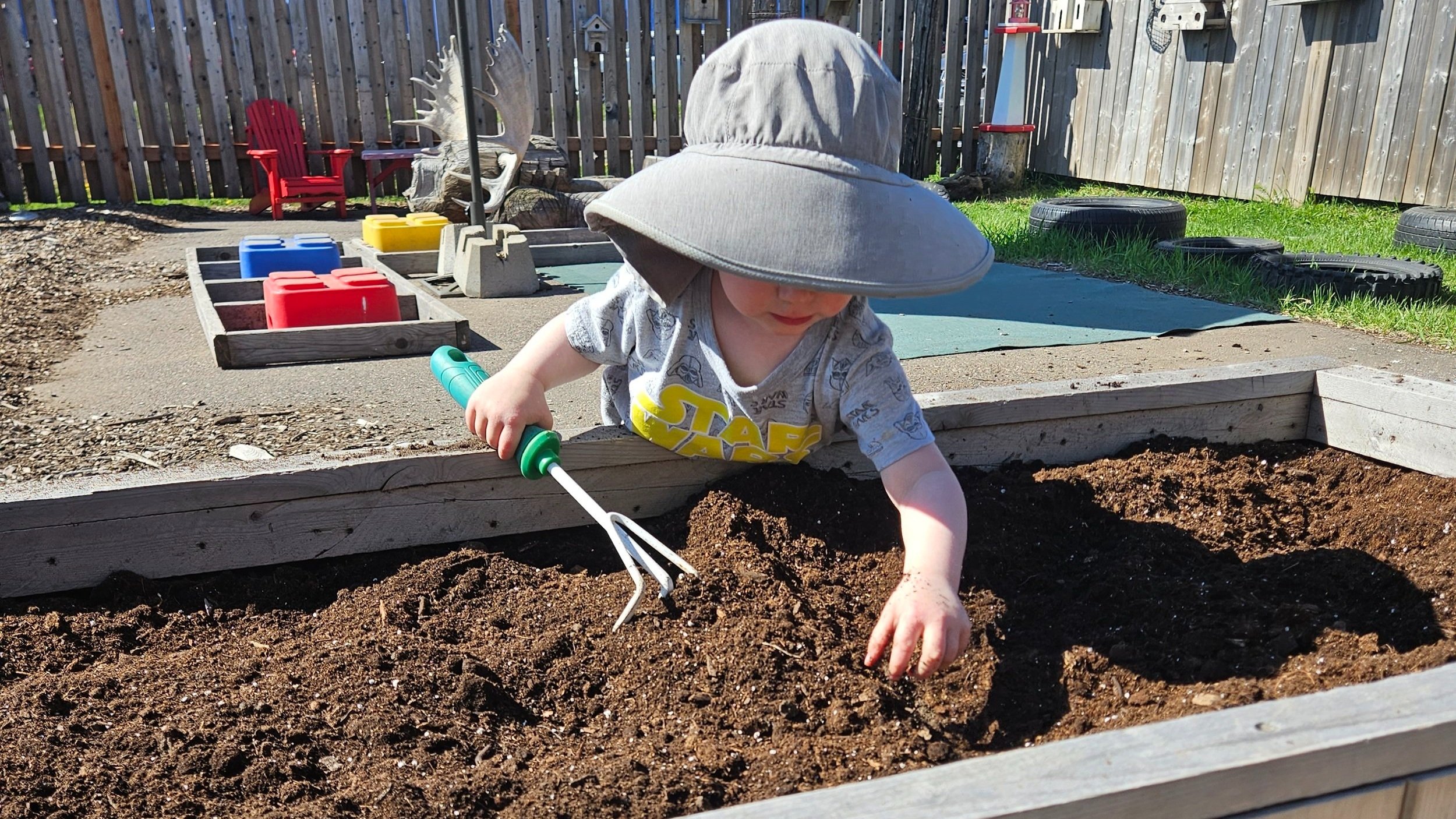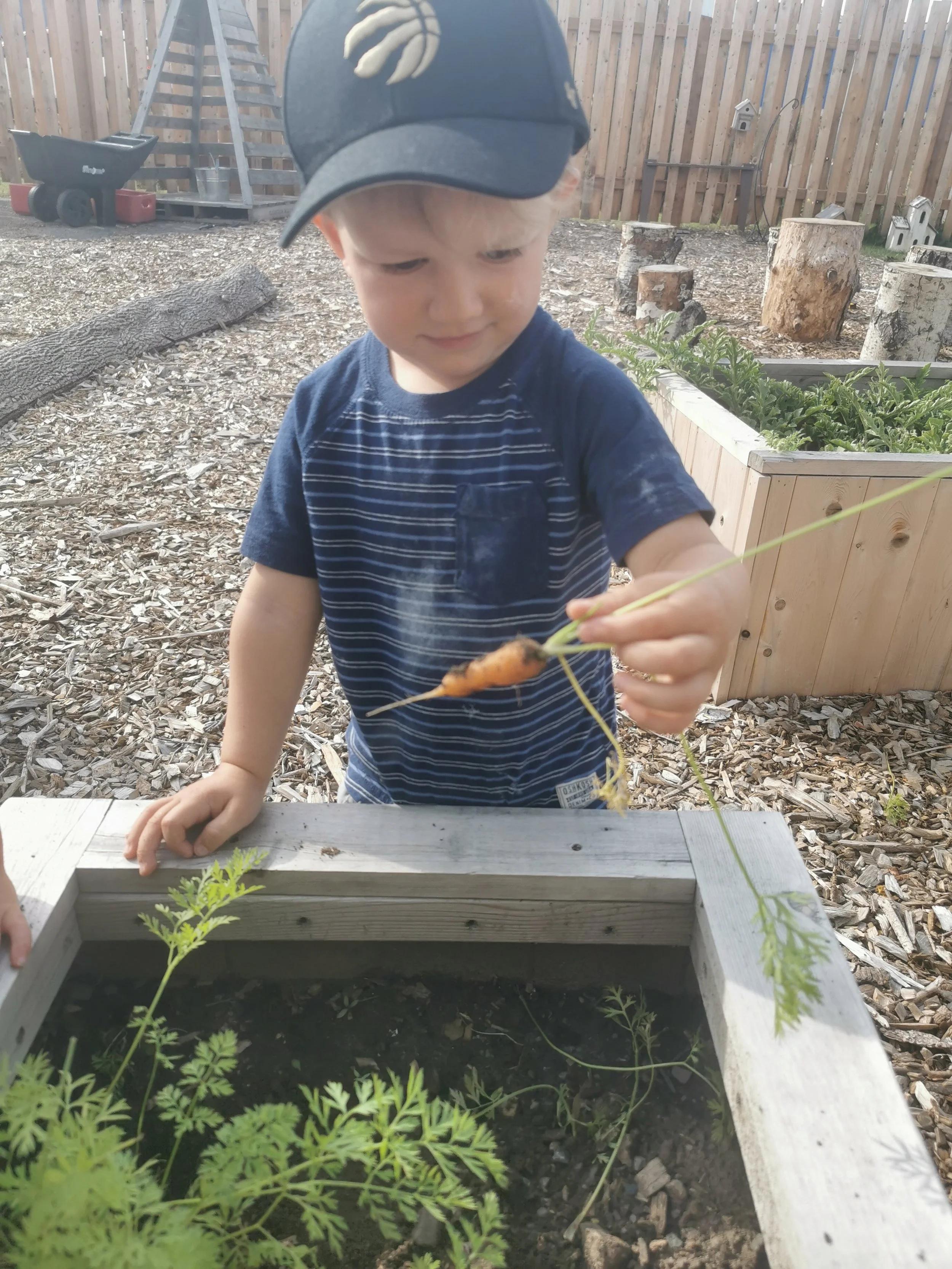
Our take on food
Our philosophy toward nutrition makes healthy eating a priority, often involving the children in our kitchen adventures. Whether they are measuring, wet or dry pouring, mixing, mashing, grating, peeling, chopping, or even taste testing, the children genuinely love to lend a hand. Not only does this give the children a sense of autonomy and control over their food choices, but it also fosters food positivity.
What does food positivity mean to us? When children have a positive relationship with food, they can enjoy eating food and appreciate the body’s cues about what to eat and when. Making it possible at an early age to learn how to make healthy and safe decisions about food without succumbing to outside influences. Developing food positivity can sometimes be challenging with allergies, and food aversions to textures and such, but it is still possible!
Our approach to fostering food positivity has four easy guidelines: Be a healthy role model, forget the clean plate, avoid bribery, and enjoy food.
Being a healthy role model may be one of the most challenging steps, especially if the role model has food insecurities or aversions of their own. We pay special attention to avoid categorizing foods, even though some are healthier than others, by not labelling them. We will not use terms like healthy/unhealthy, desserts/treats, good for you/bad for you etc. Rather, we create space to describe the foods characteristics, such as colorful, different, delicious, crunchy, smooth etc., understanding that everyone has different tastes and might not like the same things, delivering the message that that’s ok!
Forgetting the clean plate is about trusting the children to know when they are hungry or full. Although it is crucial for their health to ensure they get enough to eat, it is also important to allow them to listen to their body’s internal cues. We offer them a first serving, then allow them to self-serve until they deem themselves full. If we were creating pressure for them to clean their plates, it could potentially lead to challenges with food down the road. Instead, we guide them to eat proper amounts at mealtimes, ensuring that they receive enough vital nutrients.
Avoiding bribery can also be a hard habit to break because not all food looks yummy and enticing. Also, your little ones may not like something the first time around; however, we keep trying. Something they refused to eat today may become their favorite entrée or snack months or years from now! We do not use deals or bribes to “convince” them to eat things they don’t like, as they may begin to expect something after every meal which can lead to upsets that are avoidable. Our goal is to encourage them to try it at least once, give it a little taste, always respecting their choice.
Enjoying food is the last but most important guideline. If children have fun with food, they are more likely to develop a positive attitude towards eating. We prepare most of our food together, from scratch, using local ingredients where possible. We have a garden that the children tend to during the spring through to harvest season, letting them decide which vegetables and fruit they would like to try and grow. We believe it’s important for children to understand where food comes from, diverse ways to use it, prepare it, and then share it with the ones they care about. It’s a labor of love, a meaningful experience.

